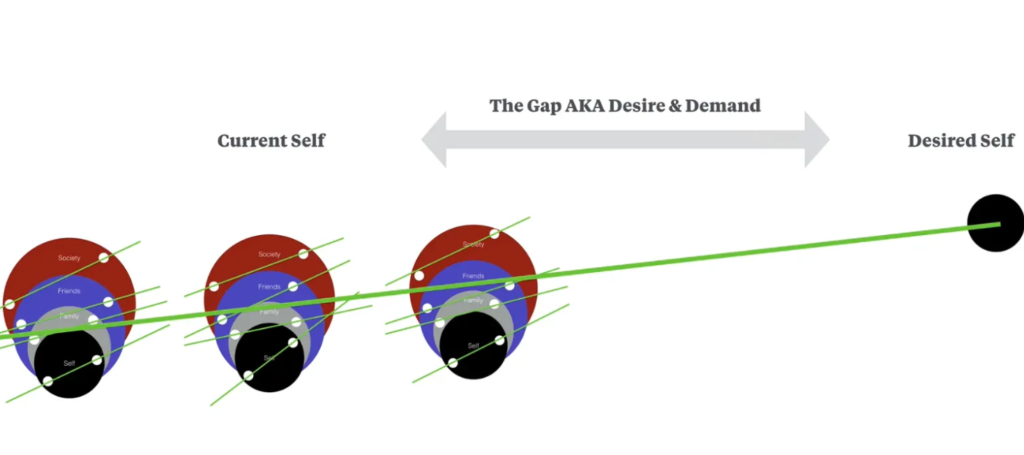“You just need to handle today.
Tomorrow doesn’t need handling — when it comes, it becomes today.
Days don’t come in bunches. They come as a single ball, one per day.
There is no such thing as an entire life. All that ever comes is the present day.
Handle the present.”
 yashbagla
yashbagla
Lifestyle Transformation: The Missing Link Between Health, Success, and Fulfillment
In today’s fast-paced world, people are more informed than ever—yet less healthy, more stressed, and deeply dissatisfied with their lives.
We know what to do: eat better, exercise, sleep well, manage stress, focus on goals.
But most people fail at doing it consistently.
This gap between knowledge and execution is where lifestyle transformation becomes the most powerful solution of our time.
What Is Lifestyle?
By Yash Bagla
When people hear the word lifestyle, they often think of fashion, travel, food, or Instagram aesthetics. But lifestyle is much deeper. It is not what you show to the world — it is how you live when no one is watching.
Lifestyle is the invisible system that drives your health, your mind, your energy, your confidence, and your entire life.
It is the collection of small daily choices that decide your future more than luck, talent, or motivation ever could.
The Truth About Success: Why Happiness Isn’t in the Future
Most people believe that once they achieve their goals —
buy their dream house, earn crores, or become the “best” in their field —
they’ll finally be happy.
But here’s the truth no one tells you:
That happiness doesn’t last.
🎓 The Psychology of Buying: Why People Don’t Buy Products — They Buy a Better Version of Themselves
In this short course-style guide, you’ll learn one of the most powerful ideas in business and human psychology —
the secret behind why people buy anything.

The Truth About Bipolar Disorder: A Sensitive Brain in an Overstimulated World
By Yash Bagla
🌱 You Were Born With a Sensitive Brain
Some people’s minds are calm like a still lake.
Others — like yours and mine — are oceans: deep, powerful, and full of movement.
We feel life more deeply — both joy and pain.
We notice details others overlook.
We dream bigger, think faster, and love harder.
This sensitivity isn’t a flaw.
It’s the same gift that makes us creative 💡, energetic ⚡, passionate ❤️, and thoughtful 🧠.
But this same gift also makes our brains easier to overload in today’s world — a world that never stops stimulating us.
The Global Lifestyle Crisis: Why the World Is Drowning in Distraction, Junk Food, and Loneliness
We are living in the healthiest century in history — and somehow, the sickest.
Our ancestors battled nature for survival.
We battle our own habits.
Everywhere you look — from the gym to the boardroom — people feel the same: tired, anxious, distracted, and disconnected.
We are surrounded by comfort, yet starving for clarity, health, and peace.
The World’s Biggest Health Problem — And the Simple Solution We’ve Been Ignoring
Section 1: The Hook & Introduction
Rohan is 24.
On January 1st, he wakes up motivated.
He’s bought new running shoes, signed up for the gym, and promised himself he’ll eat clean. The first two weeks are full of energy — morning workouts, salad bowls, and late-night motivational videos.
But by February, life creeps in.
Deadlines pile up. Friends call for weekend parties. Instagram scrolling stretches past midnight. The gym feels harder, the salad feels boring, and the pizza feels rewarding.
By March, Rohan quits. “I’ll start again next year,” he tells himself.
Does this sound familiar?
If yes, you’re not alone. In fact, you’re part of the majority.
Studies show that:
- 80% of New Year’s health resolutions fail by February.
- 50% of new gym members quit within six months.
- Most dieters regain lost weight within a year.
The shocking truth?
The world’s biggest health crisis is not obesity, not diabetes, not even lack of exercise.
👉 The real crisis is that people cannot sustain healthy habits long-term.
Bipolar Disorder: Curse or Superpower? The Truth You Need to Know
For years, bipolar disorder has carried a heavy label: a mental illness, a disease, a curse.
But many who live with it, and even science itself, suggest another perspective: what if bipolar disorder, when managed, can be turned into a superpower?
Excellence vs Success: Why Chasing One Brings the Other
Introduction
Everyone wants to be successful. We dream of money, recognition, fame, and freedom. But very few people pause to ask: “Should I chase success directly, or should I chase excellence?”
The answer lies in a powerful line made famous by Aamir Khan in 3 Idiots:
👉 “Don’t run after success. Chase excellence, and success will jhak mar kar follow.”
